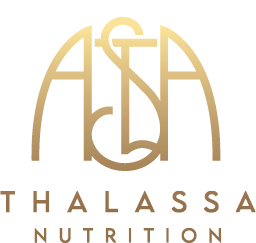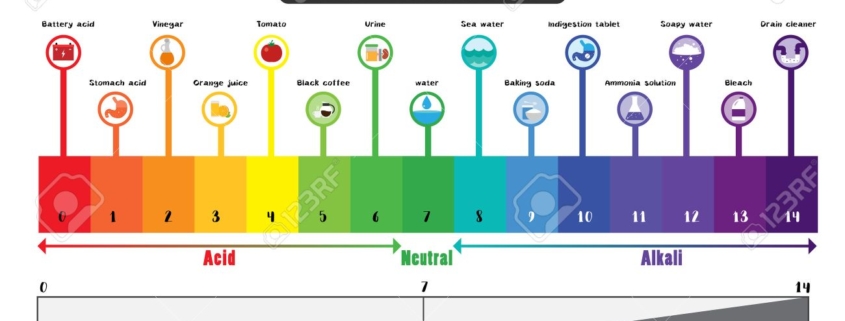pH .
What is pH?
The letters pH stand for the potential of hydrogen, which is a measurement of the hydrogen ion concentration in the body. The pH scale is a scale ranging from 1-14 with 1 being the most acidic, 7 being neutral and 14 being the most alkaline. Our ideal pH reading is 7.3 – 7.45 which is slightly basic, or alkaline. Unfortunately, due to processed foods and
How can you test your pH?
This is very simple! You can test your pH with inexpensive pH strips that you can buy online or in health food stores. You simply tear off a piece and put it in your mouth allowing the saliva to touch it for two-three seconds. Next, compare it to the colour chart provided and see where you’re at! This is best done first thing in the morning, before you eat or drink anything. Food and drinks can alter the pH reading of the saliva.
Another way to test your pH, which most health experts believe is a little more accurate of total body pH is by testing your urine. This also should be done first thing in the morning. The first reading can usually be a little more acidic because the body is clearing out acid while you sleep at night. So generally the second urine test of the morning is most accurate.
Why should we test our pH?
It’s good to get a general idea of your pH reading because it is a great indicator of health status in the body. If overly acidic, you may have some underlying issues that need to be addressed. Some diseases and disorders that are associated with over-acidity are diabetes, obesity, migraines, cataracts, cancer, arthritis, stroke, gout, morning sickness, allergies and osteoporosis. Addressing over-acidity is vital to bringing the body back into balance, as every single system in the body is affected by too much acid.
Diet, lifestyle and pH
Everything we eat or drink affects our pH. Some foods make us more acidic while others make us more alkaline. In general, animal based foods such as meat and dairy products are acidic, while plant-based foods like fruits and veggies are alkaline. We do need both acid and alkaline foods in our diet, though the convenience factor of fast-foods and processed foods have made many of us overly acidic.
Environmental factors come into play as well. Household cleaning products like soap, detergent, air fresheners, glass cleaners and other various cleaning agents all contain chemicals that are toxic to the body and contribute to acidity.
It’s the same with conventional bath and body products that contain not-so-friendly chemicals and toxins in them as well. If they go directly onto your skin, which is your body’s biggest organ, than they can be some of the biggest offenders. Try switching over to more natural and safe products. There are some great ones out on the market now!
Our bodies are amazing and fierce when it comes to protecting the pH levels. Since our body must maintain a slightly alkaline level to survive, the body will start pulling alkaline minerals out of the bones to buffer the acidity else-where. Amazing survival instinct, but this can lead to osteoporosis and other health challenges like fatigue.
How to become more alkaline:
Drink a fresh green juice every single day.
Drink the juice of half a lemon squeezed in a glass of warm water first thing in the morning (citrus fruits seem acidic but are actually very alkaline!)
Eat a diet full of nutritious and alkaline vegetables and fruits.
Stay away from all processed foods and fried foods which are extremely acidic.
Avoid refined sugar like the plague, fresh fruits are okay.
Drink quality water such as purified water or even better, fresh spring water (tap water usually has fluoride in it and is very toxic to the body, which your dentist may not tell you.)
Use natural household cleaning agents such as diluted apple cider vinegar.
Use natural bath and body product such as shampoo, conditioner, body wash, soap, toothpaste, mouthwash, lotions, facial creams
Eat more plant-based foods and opt for only grass-fed, organic animal products.
Include more
Mix ½ tsp of baking soda in a glass of water and drink

 NO
NO no
no no
no